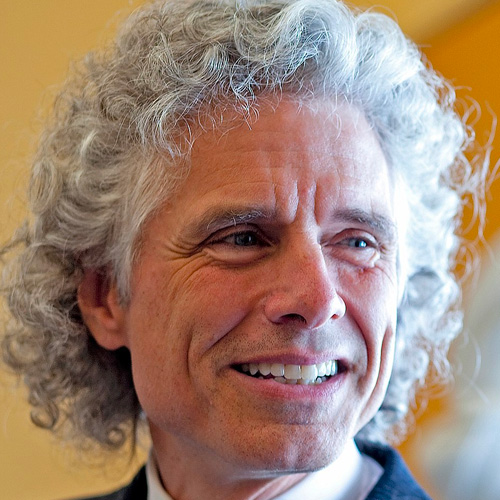Can reading a book make you more rational? Can it help you understand why there is so much irrationality in the world—like, for instance, how can a species that developed vaccines for COVID-19 in less than a year produce so much fake news, medical quackery, and conspiracy theorizing?
Steven Pinker of Harvard joined Erik Brynjolfsson on Monday, March 21, 2022, to discuss these and other topics in his seminar, “Rationality: What It Is, Why It Seems Scarce, Why It Matters.”
Today, humanity is reaching new heights of scientific understanding—and at the same time appears to be losing its mind. Why do we find ourselves flooded with fake news, medical quackery, conspiracy theorizing, and “post- truth” rhetoric? It can’t be that humans are just an irrational species — cavemen out of time saddled with biases, fallacies, and illusions. After all, we discovered the laws of nature, lengthened and enriched our lives, and discovered the benchmarks for rationality itself. Instead, we think in ways that are sensible in the low-tech contexts in which we spend most of our lives, but fail to take advantage of the powerful tools of reasoning our best thinkers have discovered over the millennia: logic, critical thinking, probability, correlation and causation, and optimal ways to update beliefs and commit to choices individually and with others. Also, the rational pursuit of self-interest, sectarian solidarity, and uplifting mythology by individuals can add up to crippling irrationality in a society. Collective rationality depends on norms that are designed to promote objectivity and truth. Rationality matters. It leads to better choices in our lives and in the public sphere, and is the ultimate driver of social justice and moral progress.

Steven Pinker is an experimental psychologist who conducts research in visual cognition, psycholinguistics, and social relations. He grew up in Montreal and earned his BA from McGill and his PhD from Harvard. Currently Johnstone Professor of Psychology at Harvard, he has also taught at Stanford and MIT. He has won numerous prizes for his research, his teaching, and his books, including The Language Instinct, How the Mind Works, The Blank Slate, The Better Angels of Our Nature, The Sense of Style, and Enlightenment Now. He is an elected member of the National Academy of Sciences, a two-time Pulitzer Prize finalist, a Humanist of the Year, a recipient of nine honorary doctorates, and one of Foreign Policy’s “World’s Top 100 Public Intellectuals” and Time’s “100 Most Influential People in the World Today.” He was Chair of the Usage Panel of the American Heritage Dictionary, and writes frequently for the New York Times, the Guardian, and other publications. His twelfth book, to be published in September 2021, is called Rationality: What It Is, Why It Seems Scarce, Why It Matters.